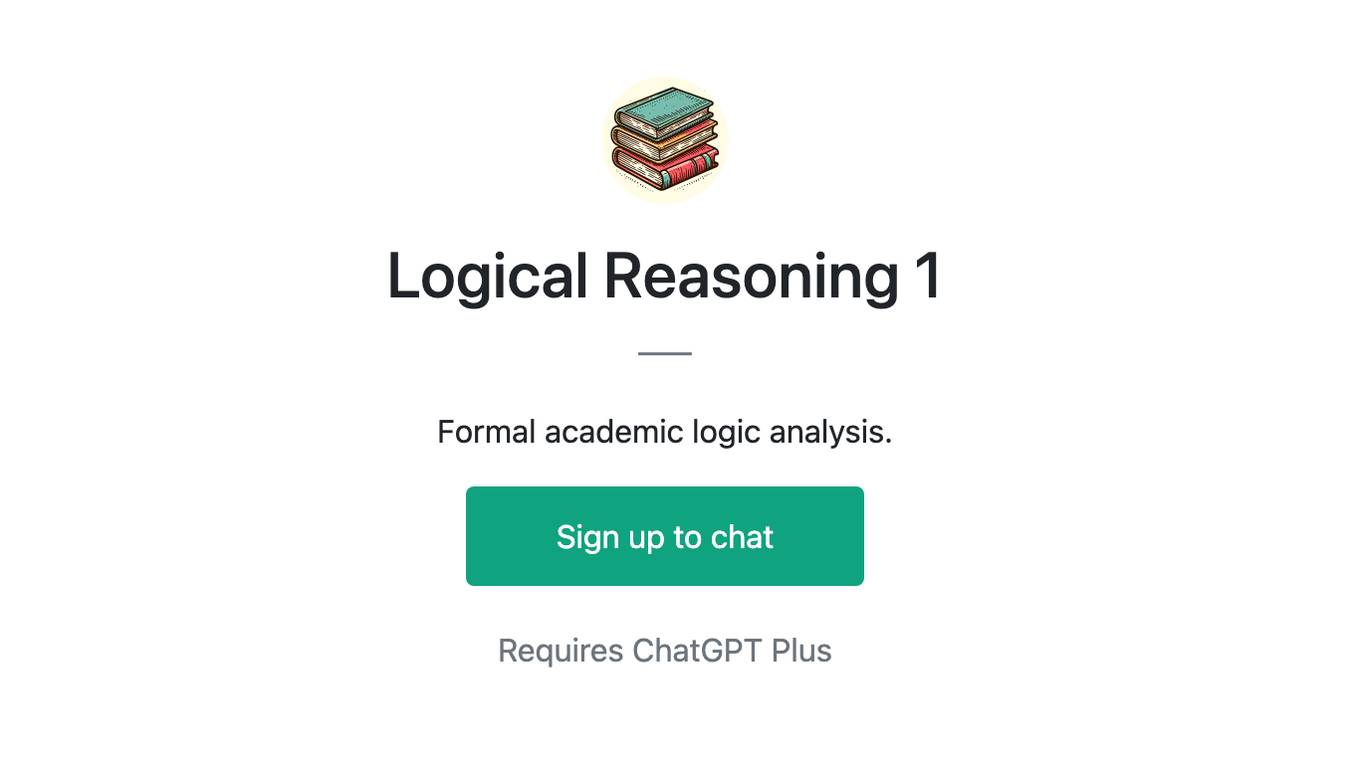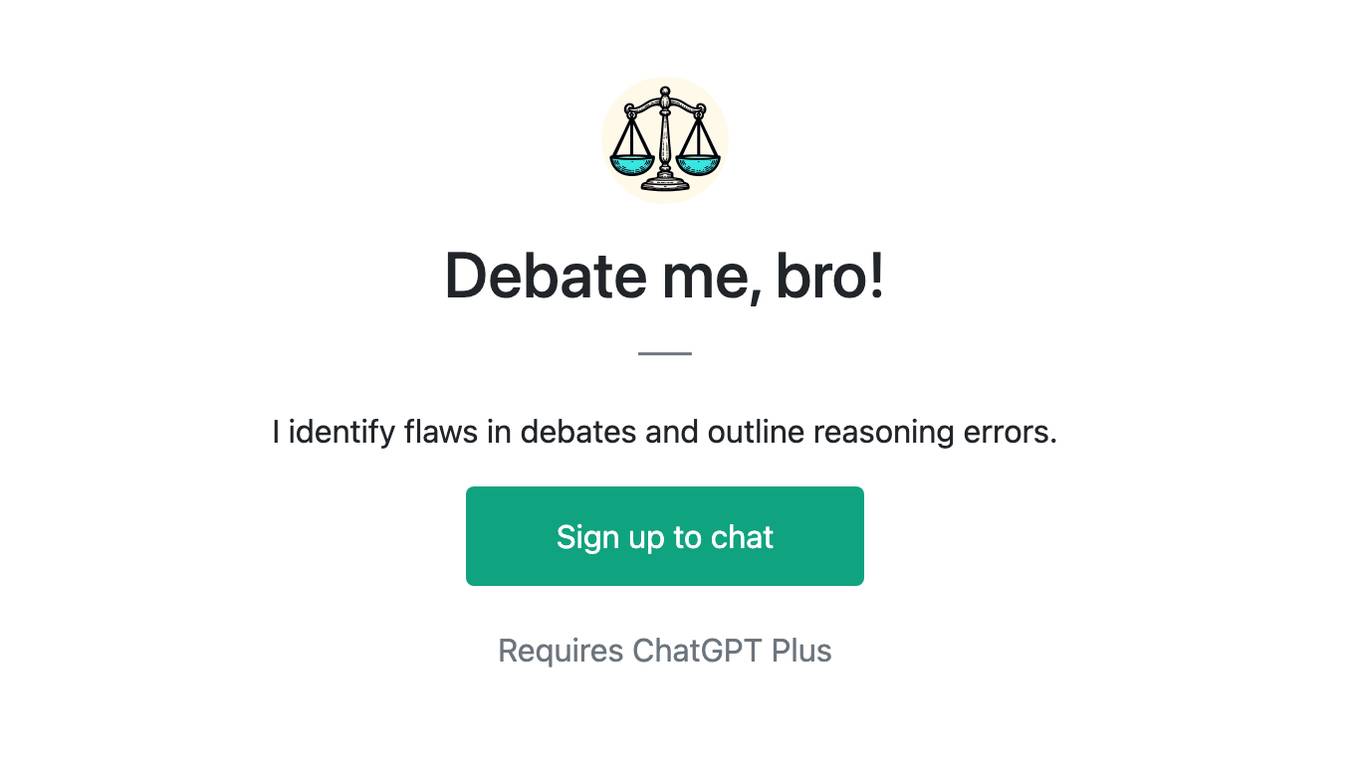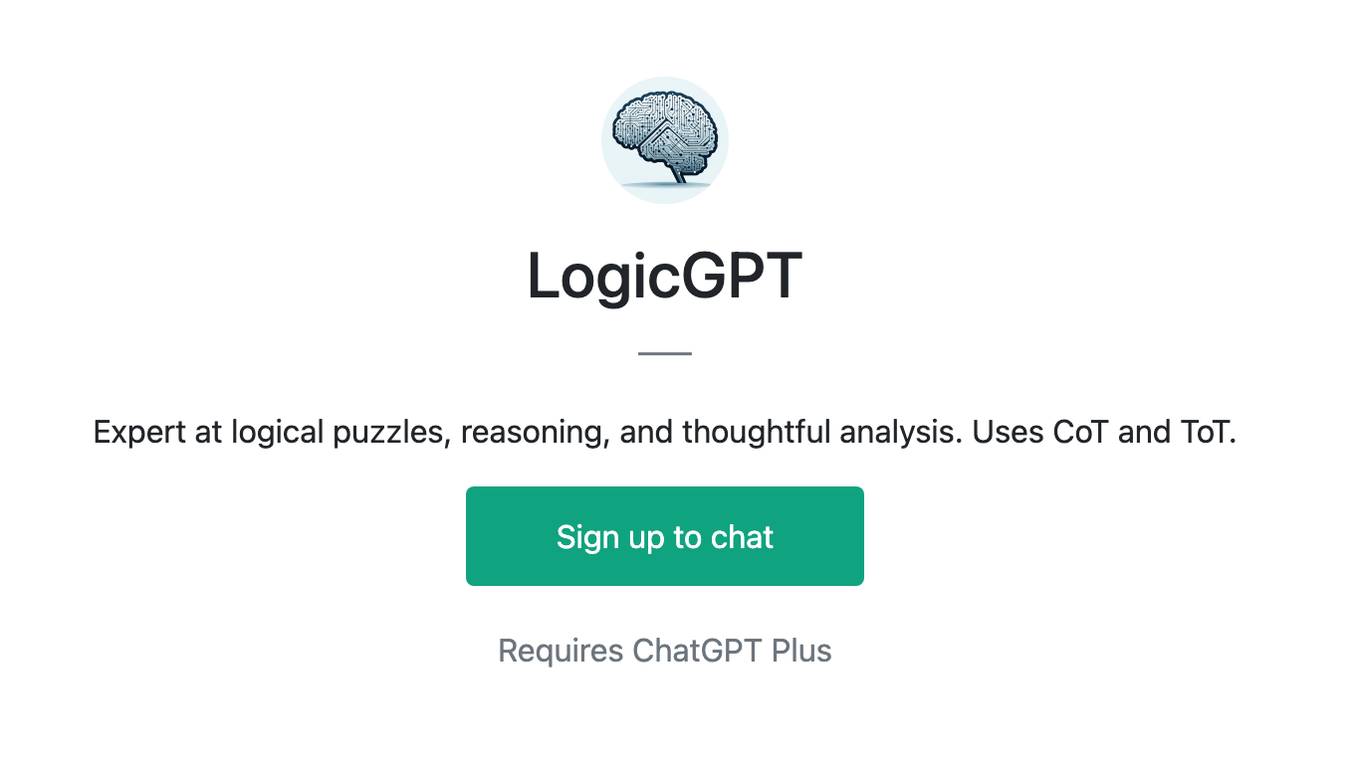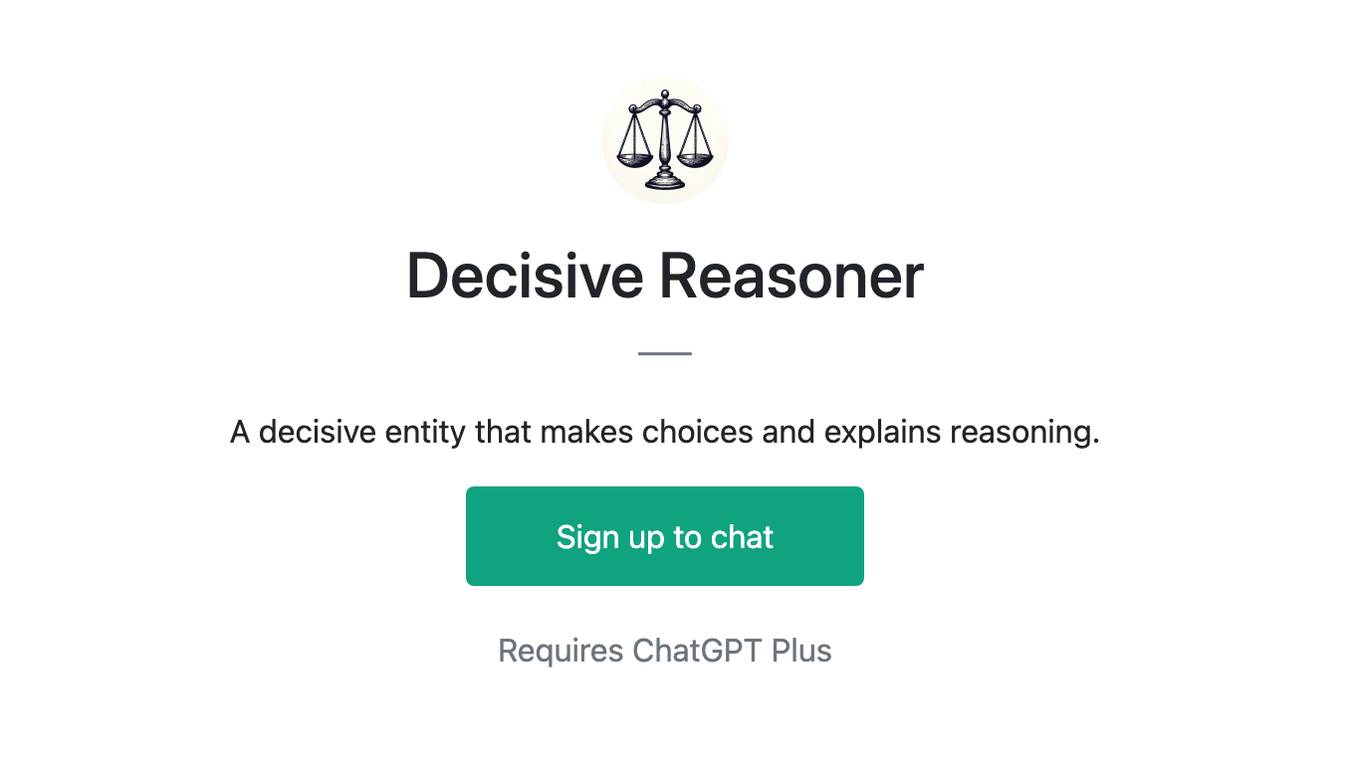Best AI tools for< Reasoning Answers >
20 - AI tool Sites
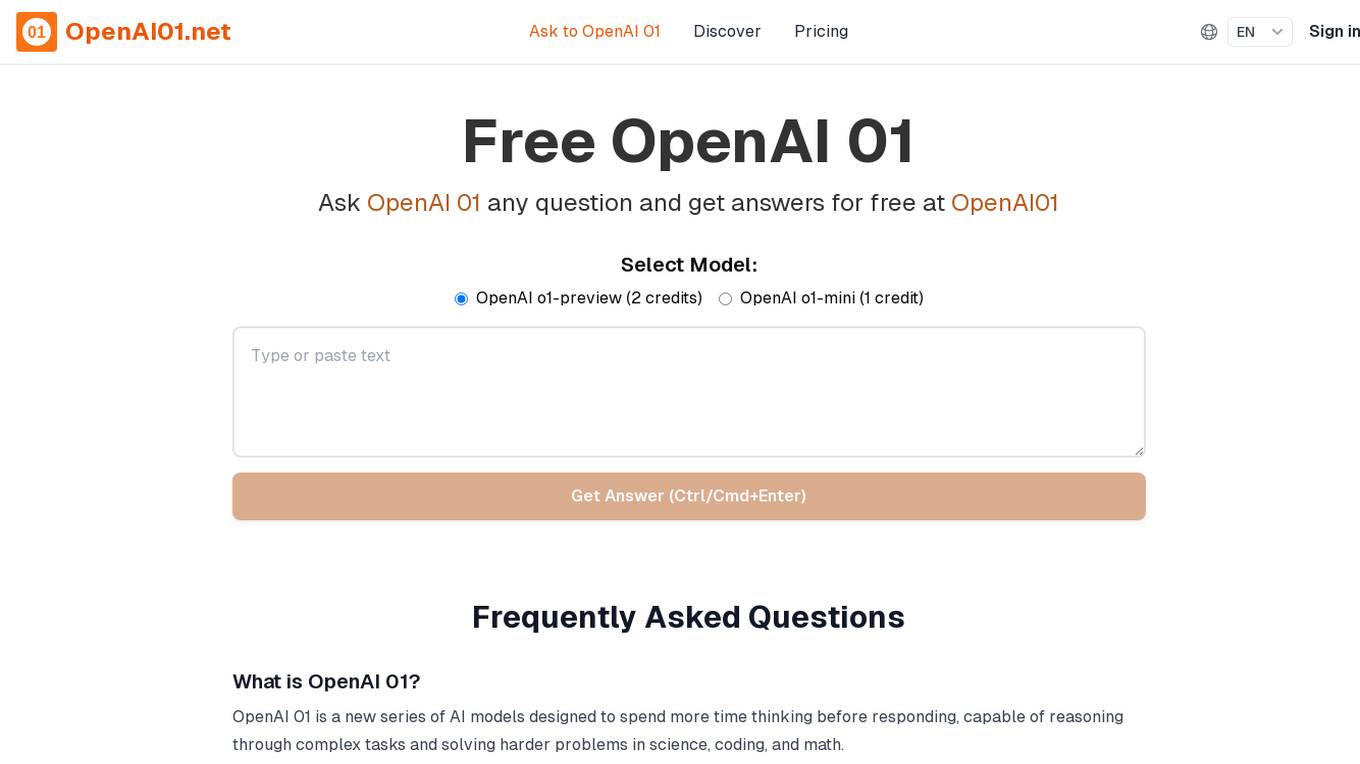
OpenAI01
OpenAI01.net is an AI tool that offers free usage with some limitations. It provides a new series of AI models designed to spend more time thinking before responding, capable of reasoning through complex tasks and solving harder problems in science, coding, and math. Users can ask questions and get answers for free, with the option to select different models based on credits. The tool excels in complex reasoning tasks and has shown impressive performance in various benchmarks.
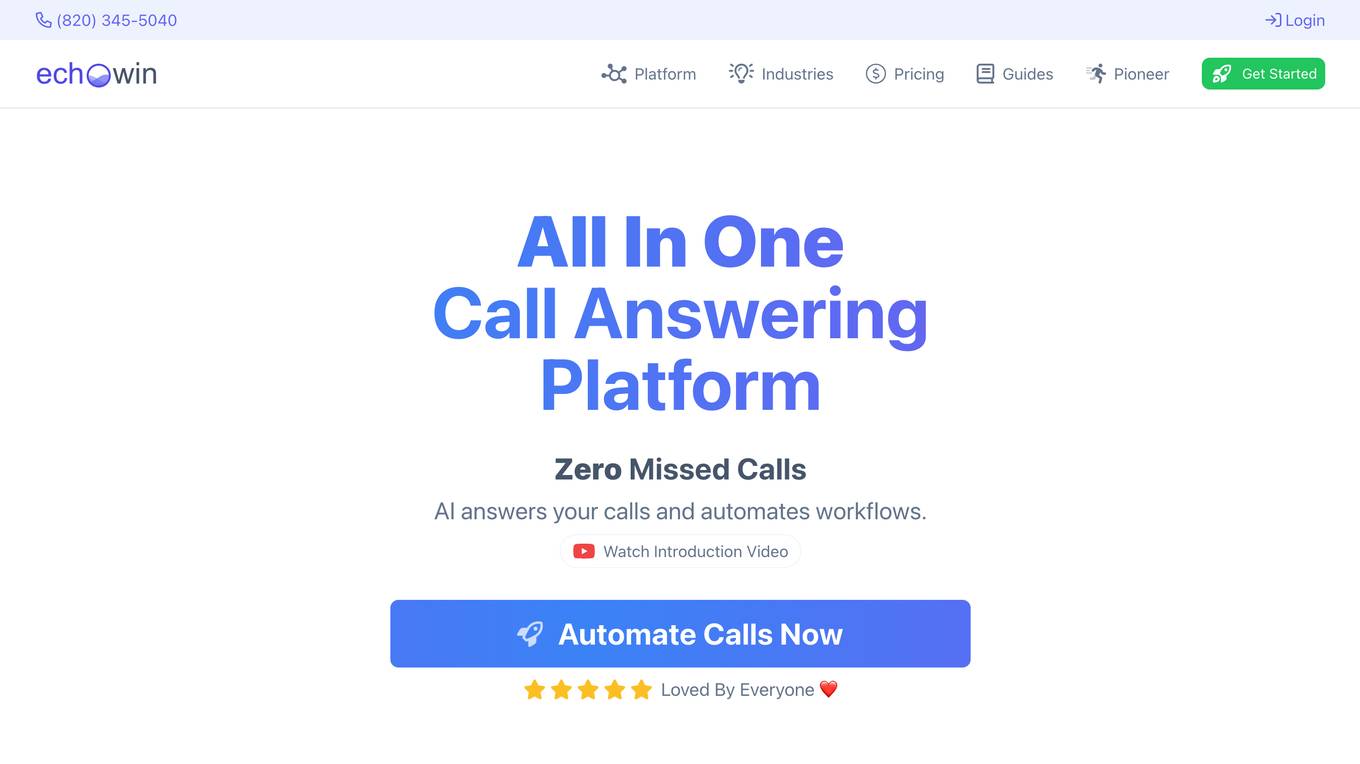
echowin
echowin is an AI Voice Agent Builder Platform that enables businesses to create AI agents for calls, chat, and Discord. It offers a comprehensive solution for automating customer support with features like Agentic AI logic and reasoning, support for over 30 languages, parallel call answering, and 24/7 availability. The platform allows users to build, train, test, and deploy AI agents quickly and efficiently, without compromising on capabilities or scalability. With a focus on simplicity and effectiveness, echowin empowers businesses to enhance customer interactions and streamline operations through cutting-edge AI technology.
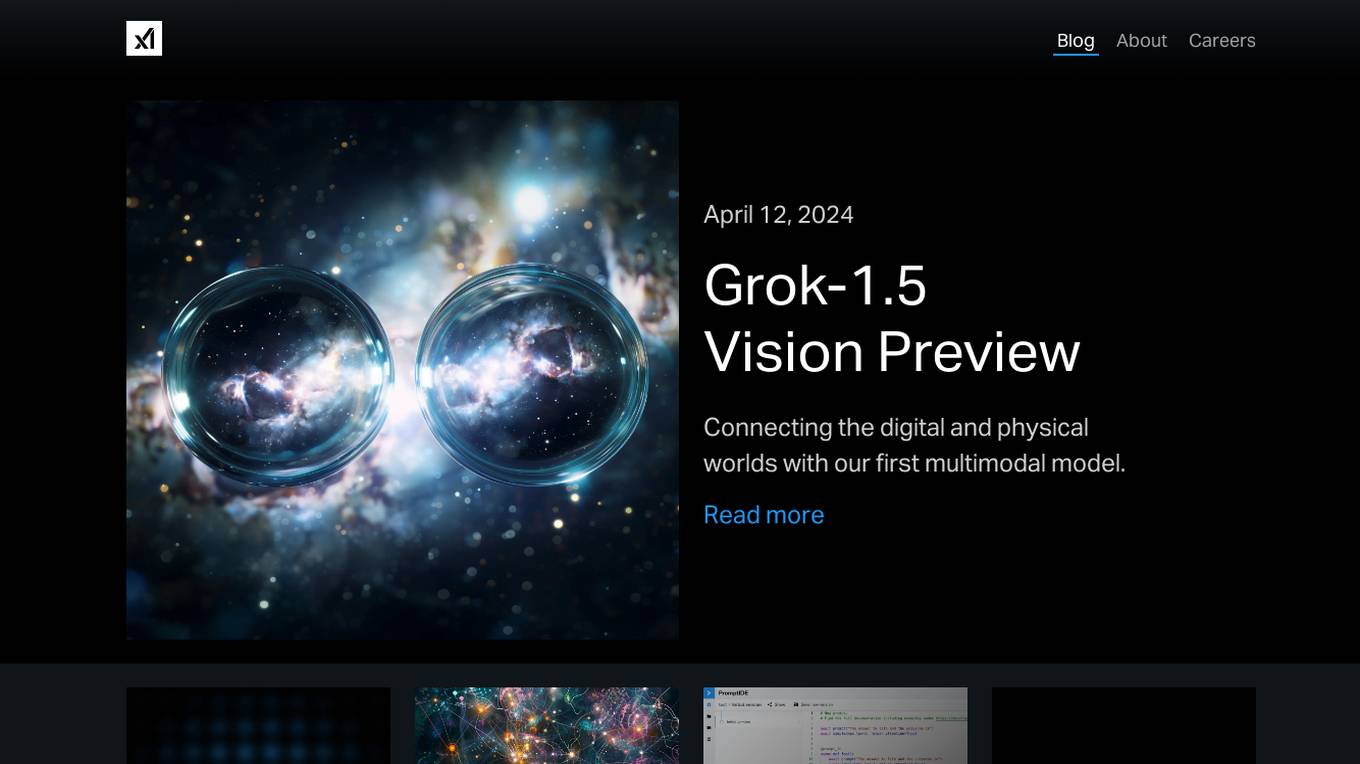
Grok-1.5
The website features Grok-1.5, an AI application that bridges the gap between the digital and physical worlds through its multimodal model. Grok-1.5 boasts enhanced reasoning capabilities and a context length of 128,000 tokens. Additionally, the platform offers PromptIDE, an IDE for prompt engineering and interpretability research, allowing users to create and share complex prompts in Python. Grok, an AI modeled after the Hitchhiker’s Guide to the Galaxy, is also available on the site, providing answers to a wide range of questions and even suggesting relevant queries. The platform aims to facilitate knowledge sharing and exploration through advanced AI technologies.

Tutorly
Tutorly is an AI-powered tutoring platform that offers personalized quiz questions, interactive verbal reasoning exercises, and tailored feedback to enhance the learning experience. Users can choose from a selection of premade tutors or provide custom instructions, upload notes, chat with the tutor, and ask unlimited questions to get instant, accurate answers. With flexible pricing plans and access to beta gamemodes, Tutorly aims to revolutionize the way students learn beyond limits.

Mendel AI
Mendel AI is an advanced clinical AI tool that deciphers clinical data with clinician-like logic. It offers a fully integrated suite of clinical-specific data processing products, combining OCR, de-identification, and clinical reasoning to interpret medical records. Users can ask questions in plain English and receive accurate answers from health records in seconds. Mendel's technology goes beyond traditional AI by understanding patient-level data and ensuring consistency and explainability of results in healthcare.
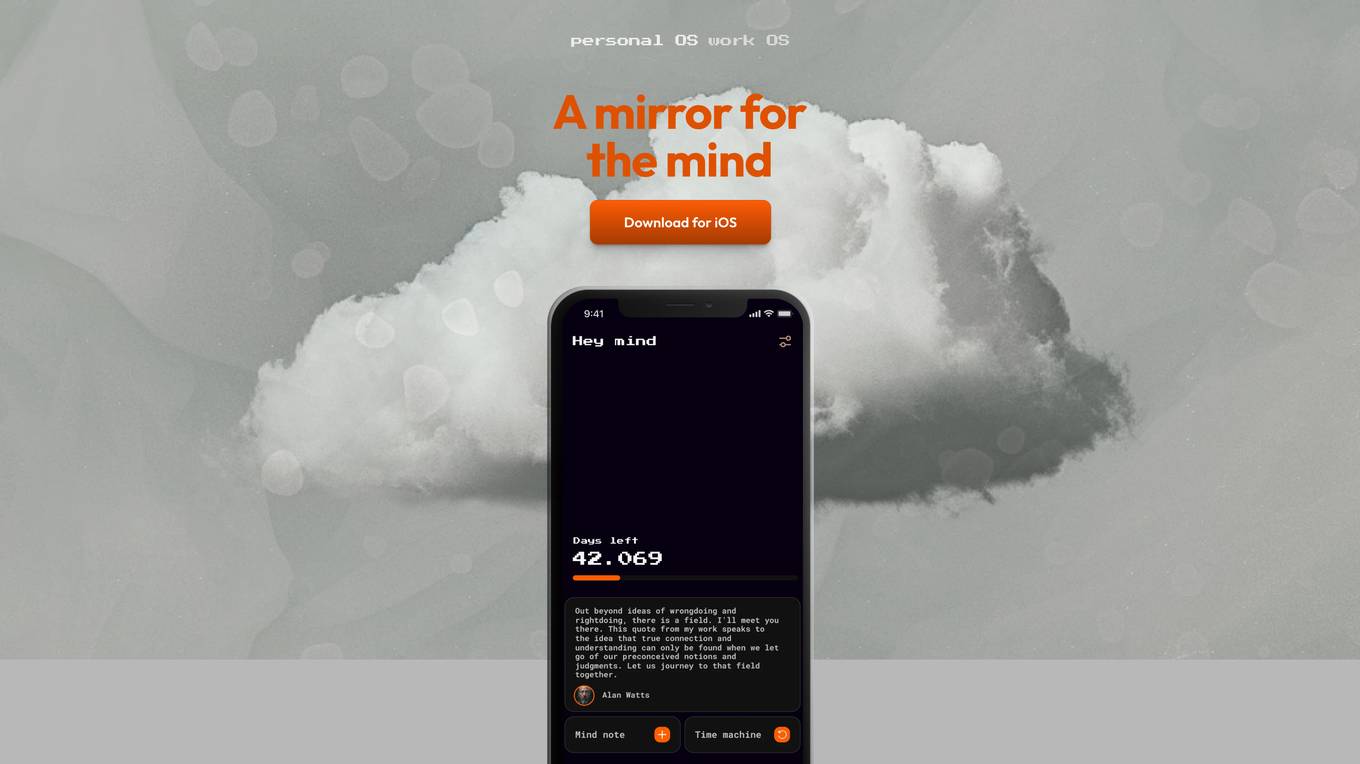
Hey Mind
Hey Mind is a new kind of design lab that aims to unlock hidden ideas through AI-powered tools. The platform offers a unique journaling experience with LB, an inner guide, to help users understand their thoughts better. Hey Mind promotes a new renaissance by transforming work into play, enhancing productivity through creative workflows and innovative thinking. Users can revolutionize the way they work and think, with a focus on boosting efficiency and creativity.
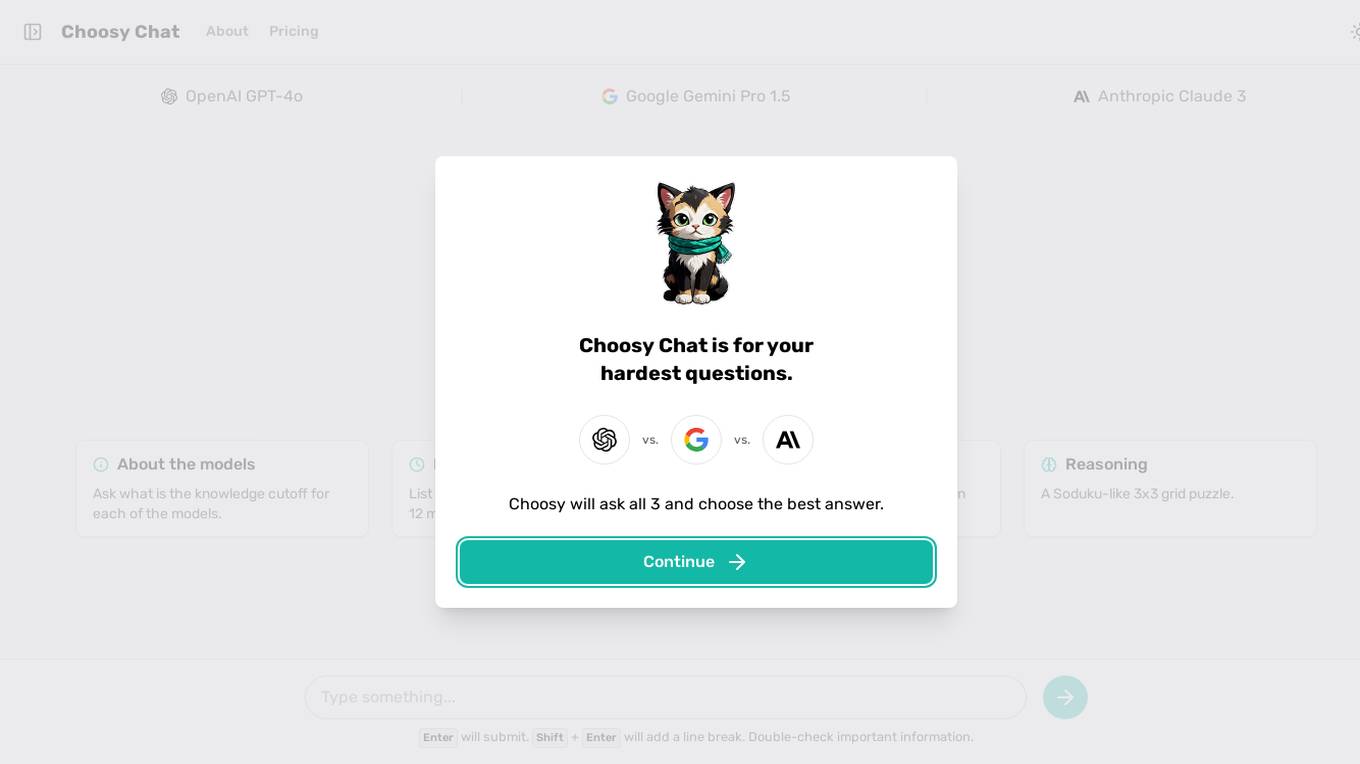
Choosy Chat
Choosy Chat is an AI-powered chat application that utilizes advanced AI models such as OpenAI GPT-4o and Google Gemini Pro 1.5 to provide intelligent responses and engage in meaningful conversations with users. The application is designed to assist users in various tasks, including answering questions, providing information on recent knowledge, coding assistance, and reasoning puzzles. Choosy Chat aims to enhance user experience through its cutting-edge AI technology and user-friendly interface.

Ask a Philosopher
Ask a Philosopher is a website where users can submit questions to be answered by philosophers. The platform allows individuals to seek philosophical insights and perspectives on various topics. Users can engage in meaningful discussions and gain a deeper understanding of complex philosophical concepts through the responses provided by knowledgeable philosophers.
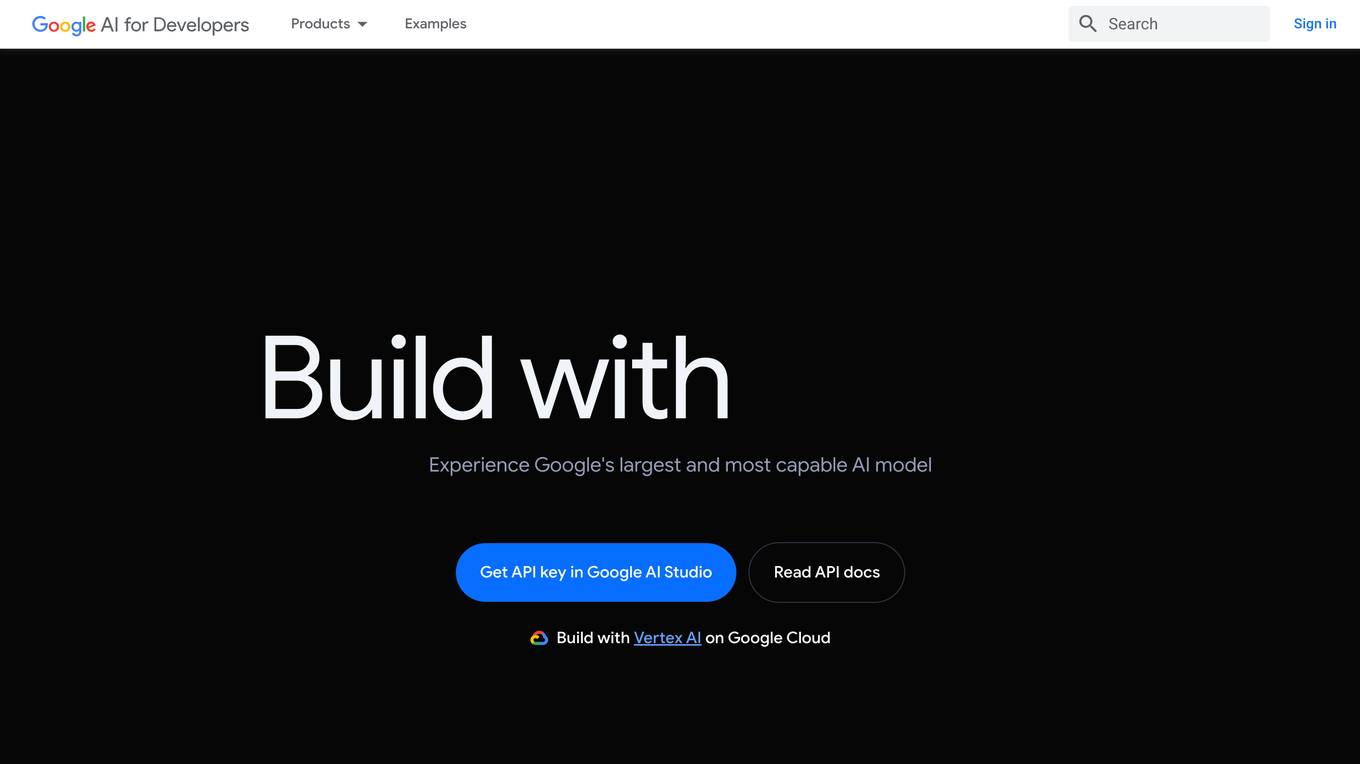
Gemini
Gemini is a large and powerful AI model developed by Google. It is designed to handle a wide variety of text and image reasoning tasks, and it can be used to build a variety of AI-powered applications. Gemini is available in three sizes: Ultra, Pro, and Nano. Ultra is the most capable model, but it is also the most expensive. Pro is the best performing model for a wide variety of tasks, and it is a good value for the price. Nano is the most efficient model, and it is designed for on-device use cases.
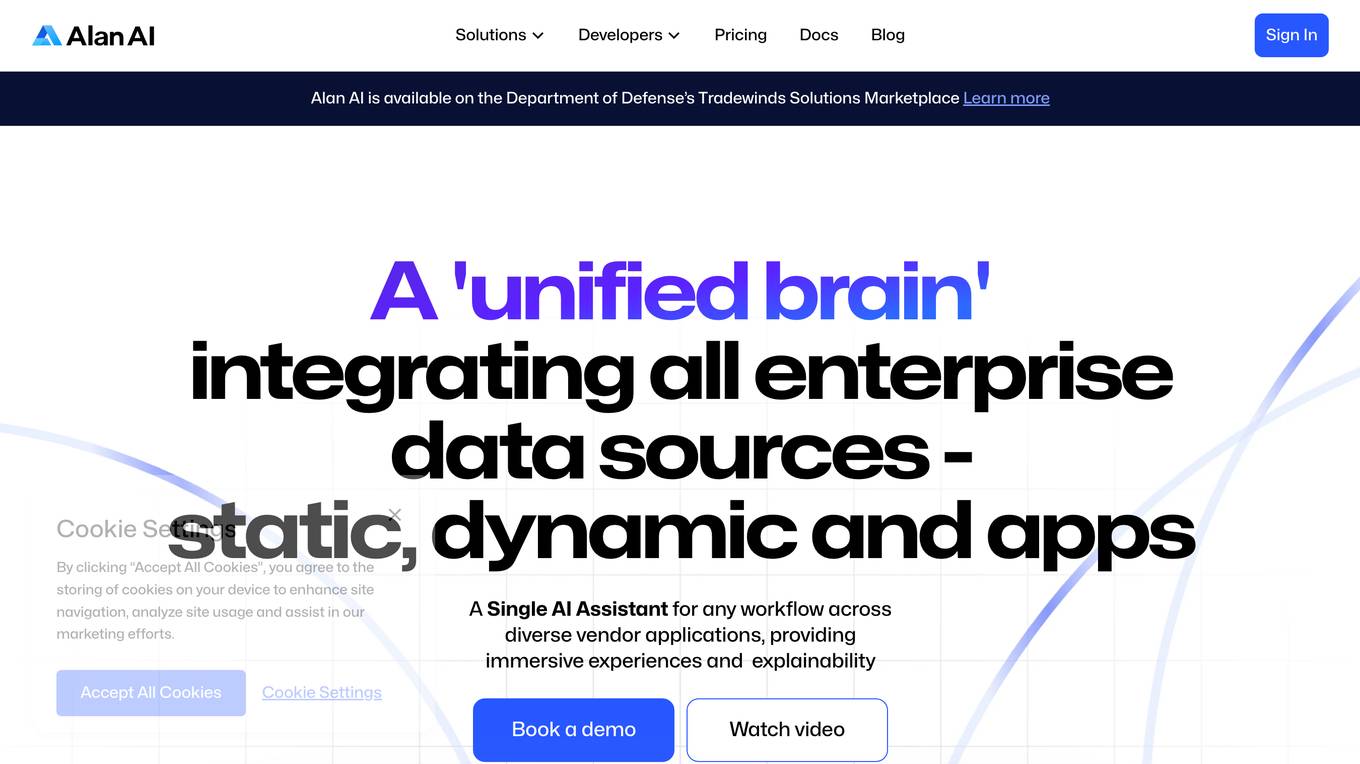
Alan AI
Alan AI is an advanced conversational AI platform that offers a wide range of AI solutions for various industries. It simplifies tasks, enhances business operations, and empowers sales strategies through AI technology. The platform provides features like question answering, semantic search, reporting, private data sources, and context awareness. With a focus on actionable AI, Alan AI aims to redefine learning and streamline decision-making processes. It offers a comprehensive suite of tools for developers, including technology architecture overview, integration, deployment, and analytics. Alan AI stands out for its innovative approach to AI reasoning, transparency, and control, making it a valuable asset for organizations seeking to leverage AI capabilities.
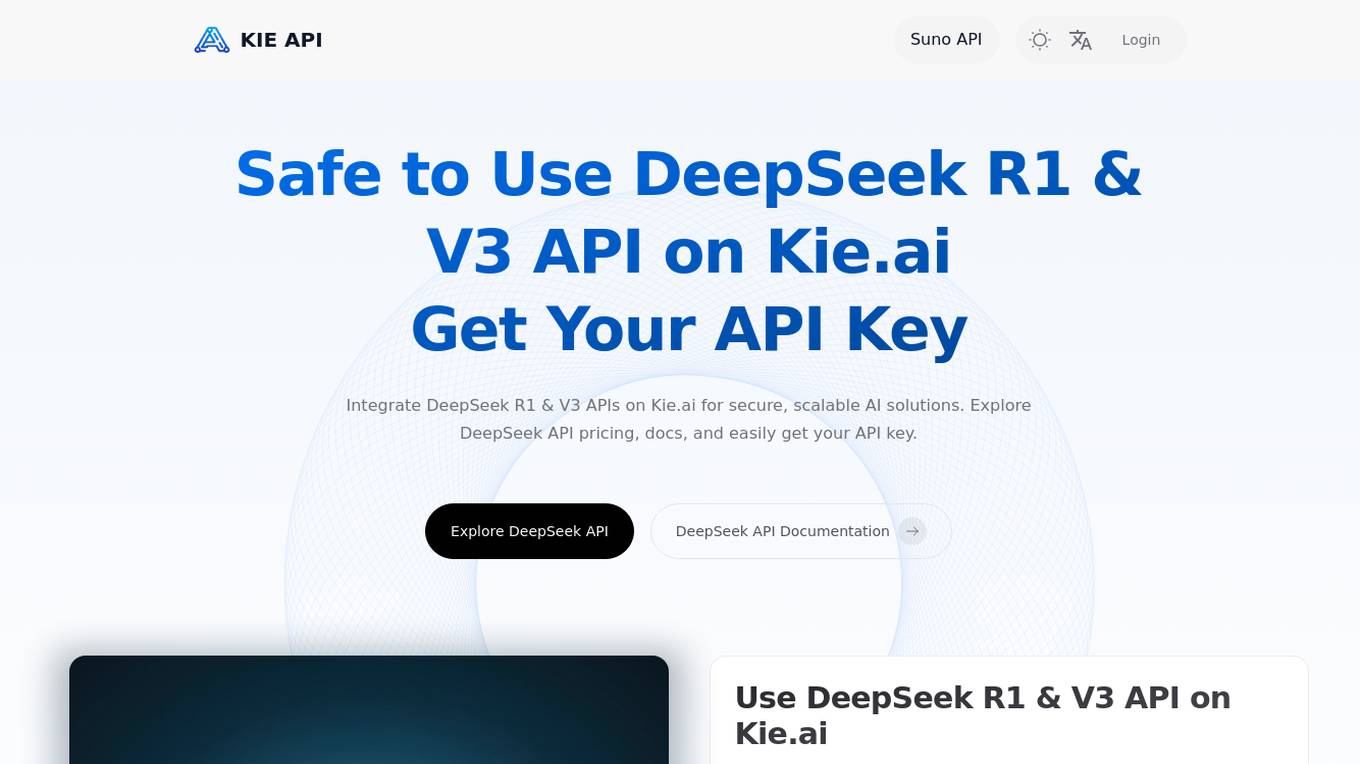
Kie.ai
Kie.ai is an AI platform that offers access to DeepSeek R1 & V3 APIs for secure and scalable AI solutions. It provides advanced reasoning models for tasks in math, coding, and language, along with versatile natural language processing capabilities. With no local deployment required, developers can easily integrate the APIs into their projects for fast and efficient AI solutions. Kie.ai ensures data security by hosting the APIs on U.S.-based servers, offering affordable pricing plans and comprehensive documentation for seamless integration.
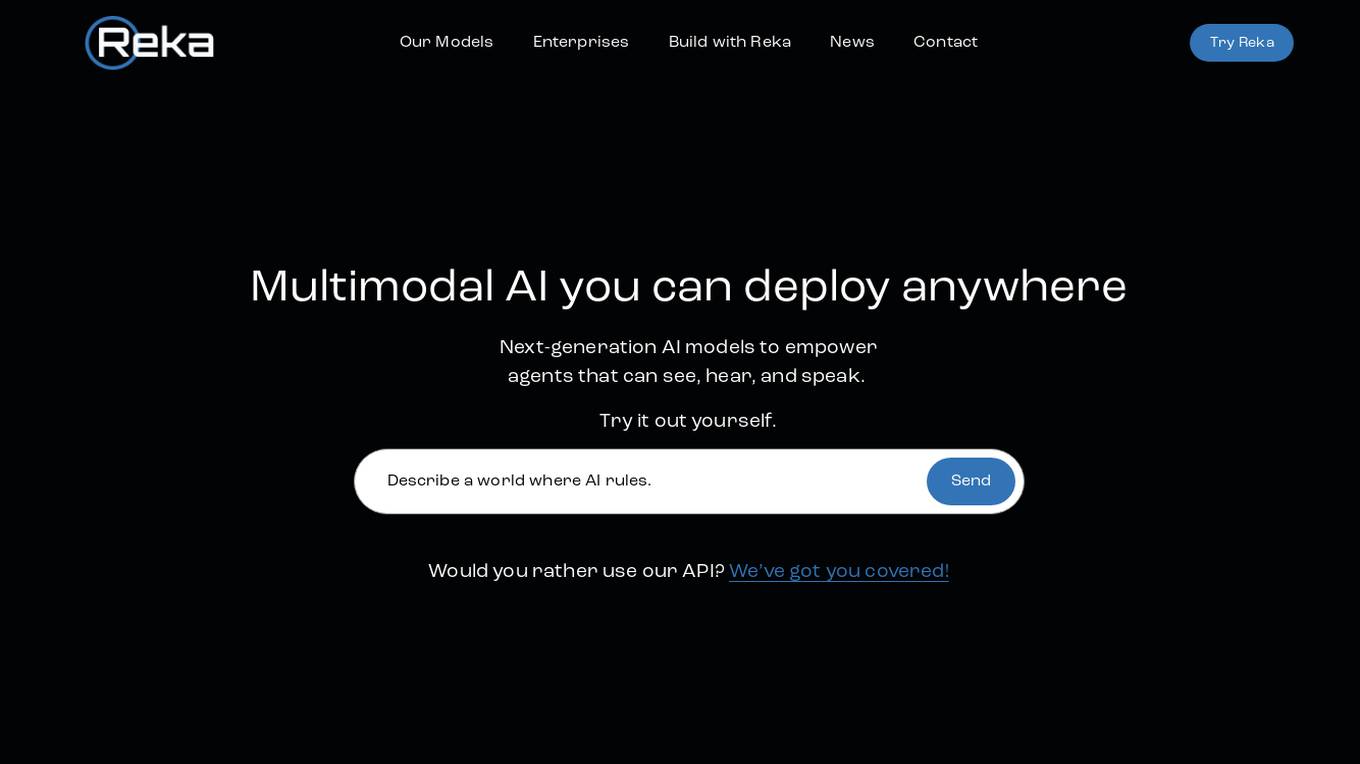
Reka
Reka is a cutting-edge AI application offering next-generation multimodal AI models that empower agents to see, hear, and speak. Their flagship model, Reka Core, competes with industry leaders like OpenAI and Google, showcasing top performance across various evaluation metrics. Reka's models are natively multimodal, capable of tasks such as generating textual descriptions from videos, translating speech, answering complex questions, writing code, and more. With advanced reasoning capabilities, Reka enables users to solve a wide range of complex problems. The application provides end-to-end support for 32 languages, image and video comprehension, multilingual understanding, tool use, function calling, and coding, as well as speech input and output.
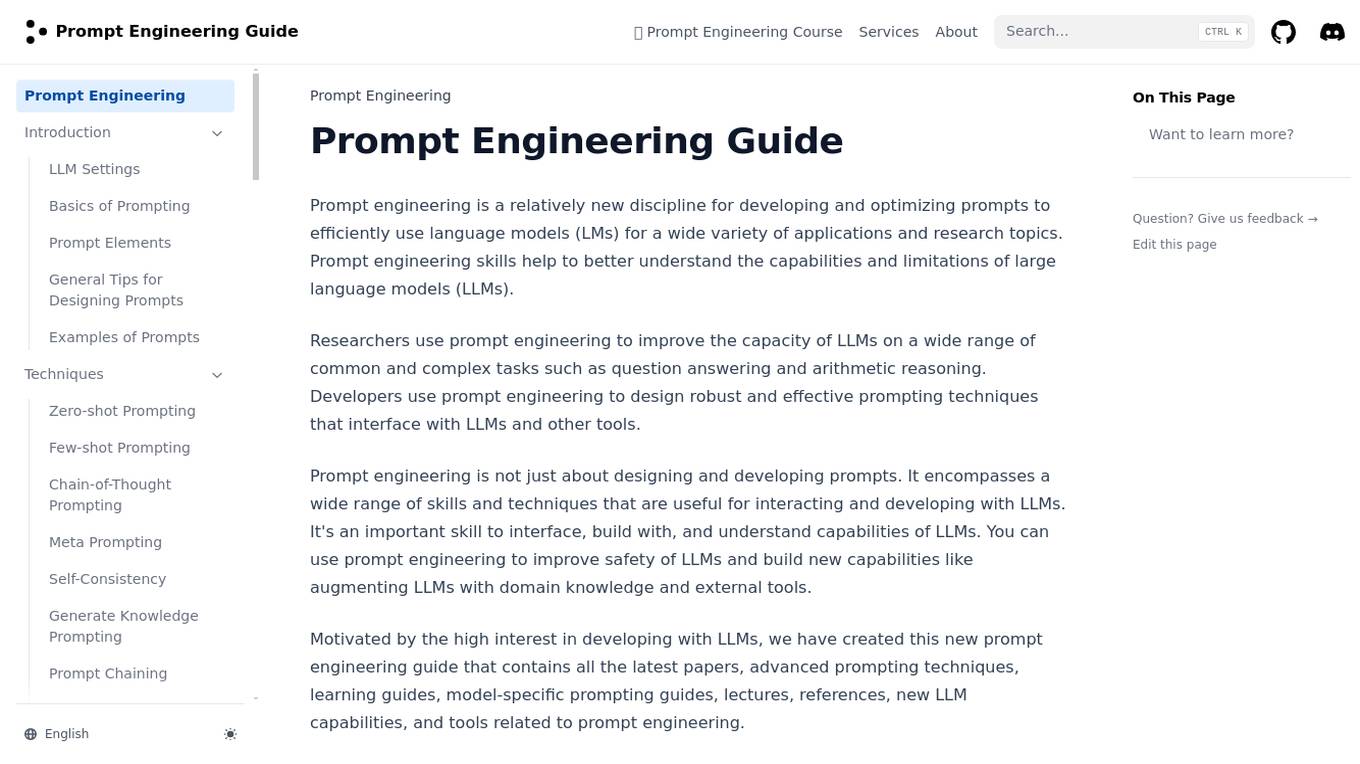
Prompt Engineering
Prompt Engineering is a discipline focused on developing and optimizing prompts to efficiently utilize language models (LMs) for various applications and research topics. It involves skills to understand the capabilities and limitations of large language models, improving their performance on tasks like question answering and arithmetic reasoning. Prompt engineering is essential for designing robust prompting techniques that interact with LLMs and other tools, enhancing safety and building new capabilities by augmenting LLMs with domain knowledge and external tools.
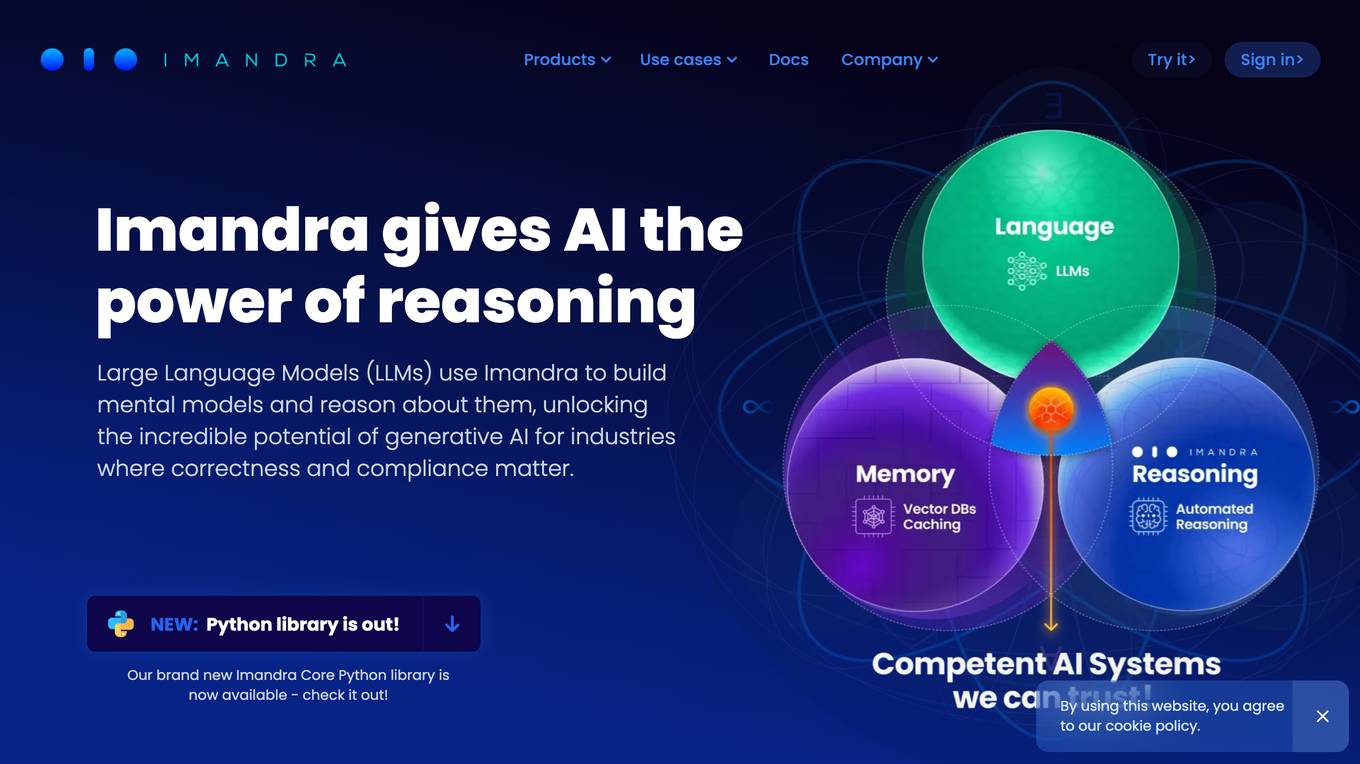
Imandra
Imandra is a company that provides automated logical reasoning for Large Language Models (LLMs). Imandra's technology allows LLMs to build mental models and reason about them, unlocking the potential of generative AI for industries where correctness and compliance matter. Imandra's platform is used by leading financial firms, the US Air Force, and DARPA.
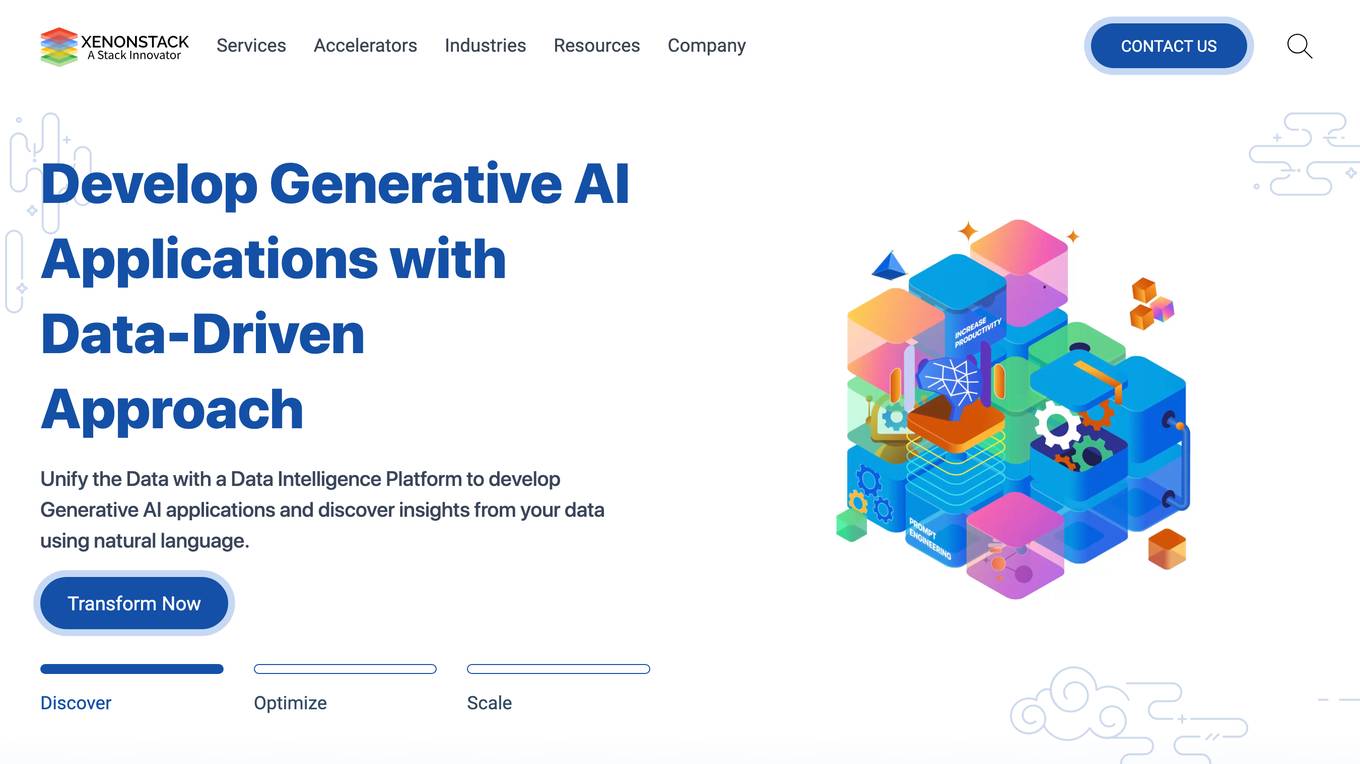
XenonStack
XenonStack is an AI application that offers a reasoning foundry for agentic enterprises. It provides unified reasoning foundation enabling seamless orchestration, analytics, infrastructure, and trust across intelligent ecosystems. The platform includes various AI tools such as Akira AI for reasoning and agent orchestration, ElixirData for agentic analytics intelligence, NexaStack for agentic infrastructure automation, MetaSecure for trust, compliance, and defense, and Neural AI for agentic intelligence & autonomous innovation. It also offers pre-built autonomous agents for domain-specific intelligence, seamless integrations, and governed enterprise deployment.

HelloScribe
HelloScribe is an autonomous reasoning engine that provides high-level creativity, strategy, and planning. It offers over 150 precision-made AI tools and templates, the ability to create in over 50 languages, speech-to-text functionality, and access to over 200 million research papers, live news, and web search. HelloScribe is designed to help professionals in various fields, including sales, marketing, consulting, and research, by automating tasks, providing real-time insights, and facilitating collaboration.
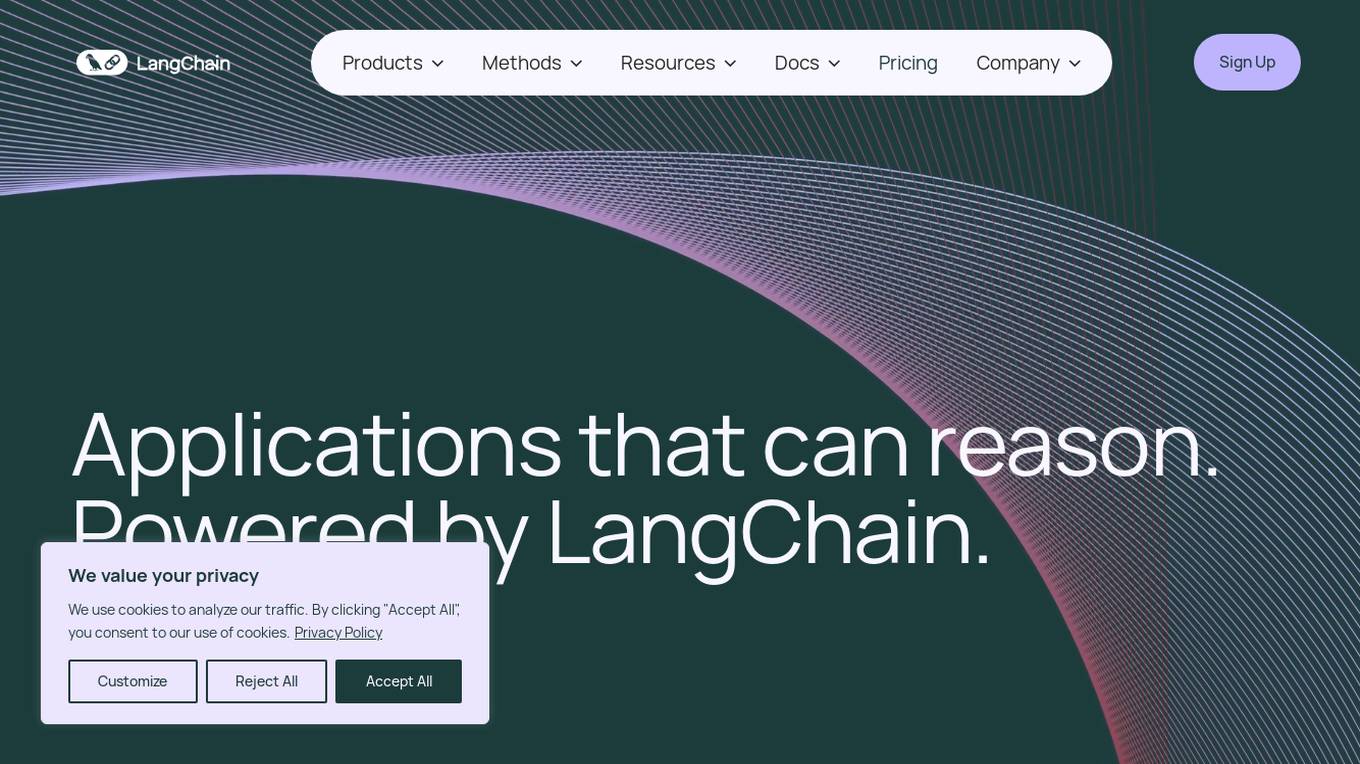
LangChain
LangChain is an AI tool that offers a suite of products supporting developers in the LLM application lifecycle. It provides a framework to construct LLM-powered apps easily, visibility into app performance, and a turnkey solution for serving APIs. LangChain enables developers to build context-aware, reasoning applications and future-proof their applications by incorporating vendor optionality. LangSmith, a part of LangChain, helps teams improve accuracy and performance, iterate faster, and ship new AI features efficiently. The tool is designed to drive operational efficiency, increase discovery & personalization, and deliver premium products that generate revenue.
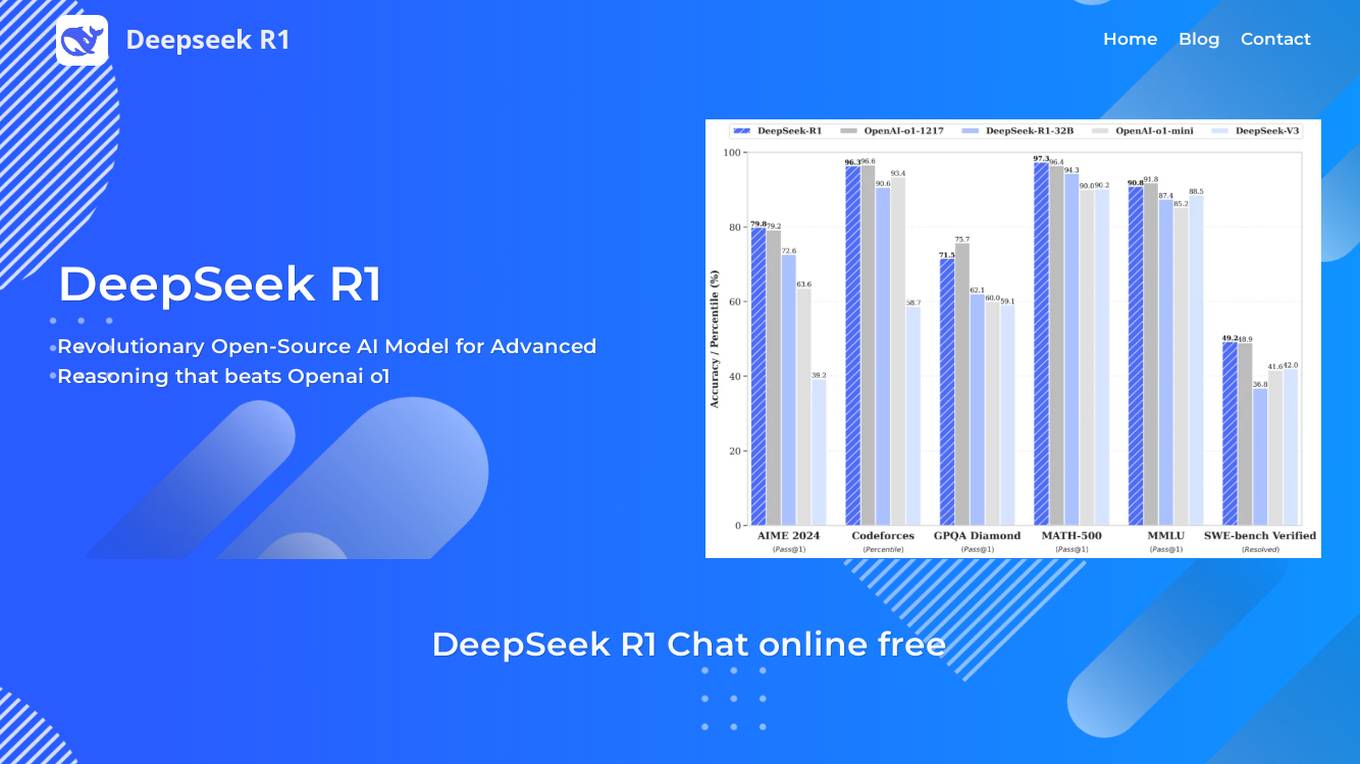
DeepSeek R1
DeepSeek R1 is a revolutionary open-source AI model for advanced reasoning that outperforms leading AI models in mathematics, coding, and general reasoning tasks. It utilizes a sophisticated MoE architecture with 37B active/671B total parameters and 128K context length, incorporating advanced reinforcement learning techniques. DeepSeek R1 offers multiple variants and distilled models optimized for complex problem-solving, multilingual understanding, and production-grade code generation. It provides cost-effective pricing compared to competitors like OpenAI o1, making it an attractive choice for developers and enterprises.
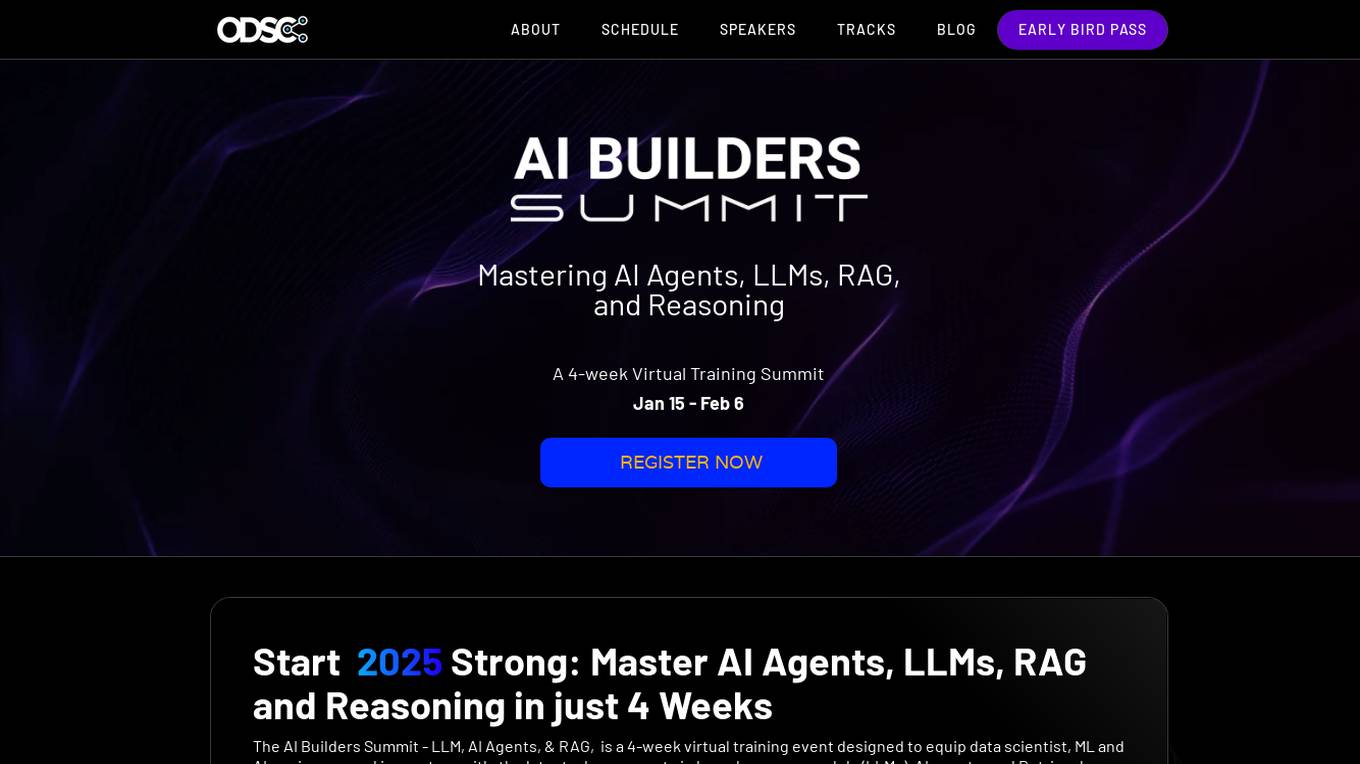
AI Builders Summit
AI Builders Summit is a 4-week virtual training event designed to equip data scientists, ML and AI engineers, and innovators with the latest advancements in large language models (LLMs), AI agents, and Retrieval-Augmented Generation (RAG). The summit emphasizes hands-on learning and real-world applications, with interactive workshops, platform credits, and direct exposure to industry-leading tools. Attendees can learn progressively over four weeks, building practical skills through expert-led sessions, cutting-edge tools, and industry insights.
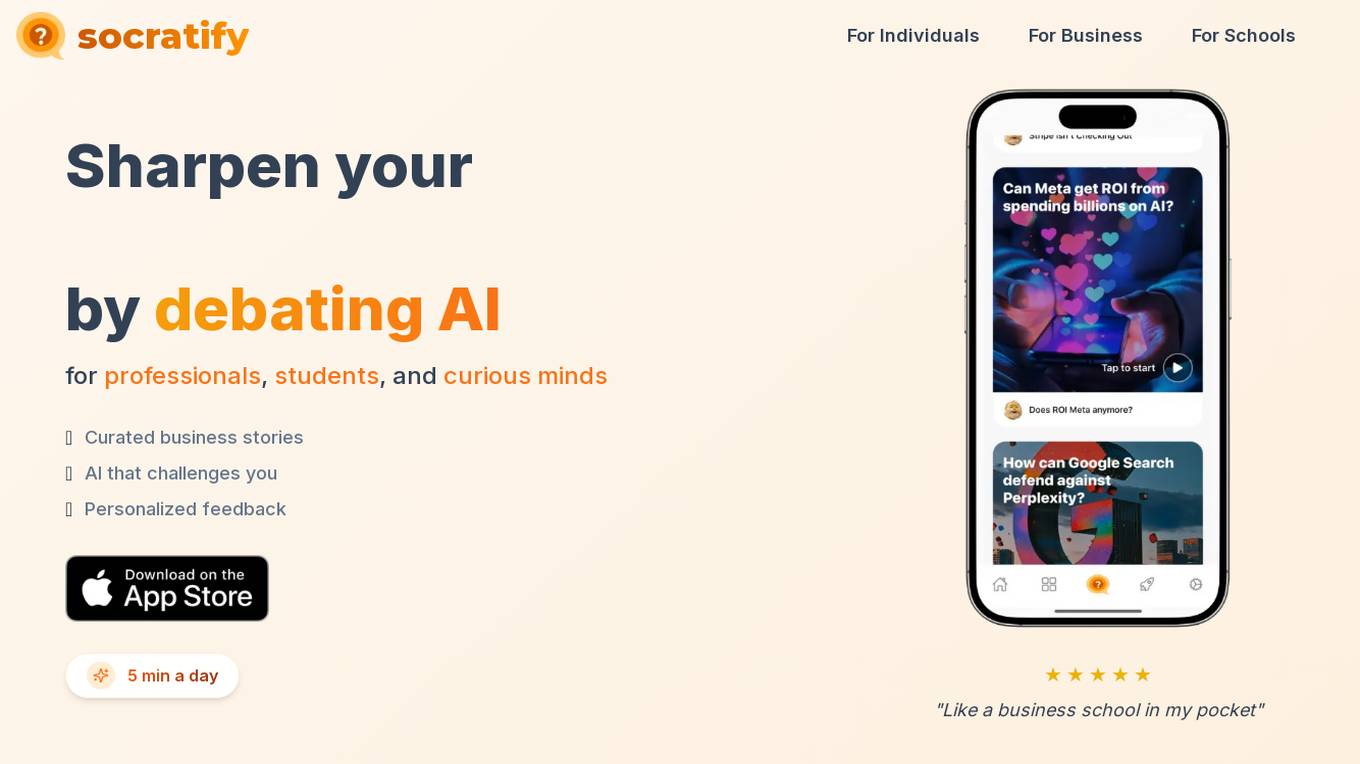
Socratify
Socratify is an AI tool designed for professionals, students, and curious minds to sharpen their debating skills. It offers curated business stories, challenges users with AI, provides personalized feedback, and encourages daily practice in just 5 minutes. Users can enhance decision-making, explore real business situations, and improve critical thinking through active learning. Socratify aims to upgrade how humans think and learn by leveraging AI technology.
1 - Open Source AI Tools
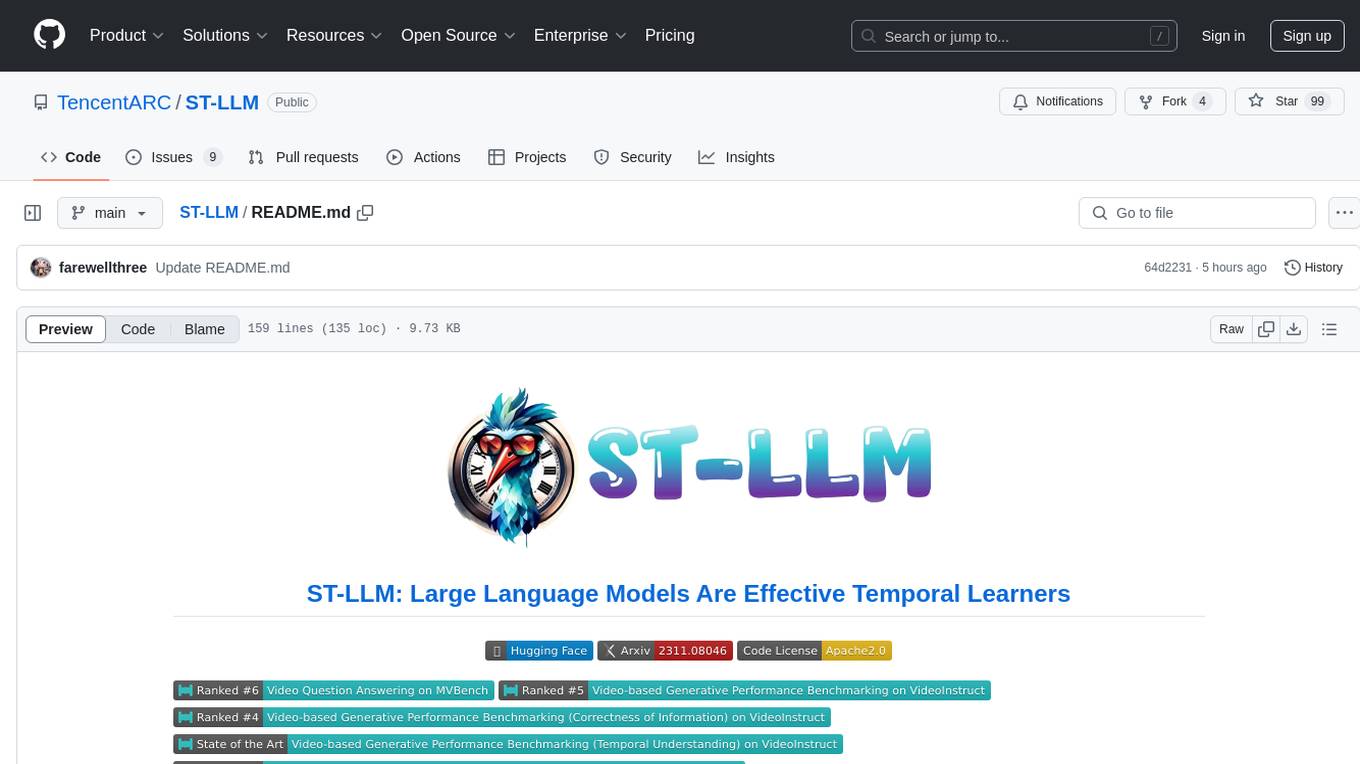
ST-LLM
ST-LLM is a temporal-sensitive video large language model that incorporates joint spatial-temporal modeling, dynamic masking strategy, and global-local input module for effective video understanding. It has achieved state-of-the-art results on various video benchmarks. The repository provides code and weights for the model, along with demo scripts for easy usage. Users can train, validate, and use the model for tasks like video description, action identification, and reasoning.
20 - OpenAI Gpts

Reasoning by Chain of Thought
Guides you through detailed reasoning to find well-supported answers.
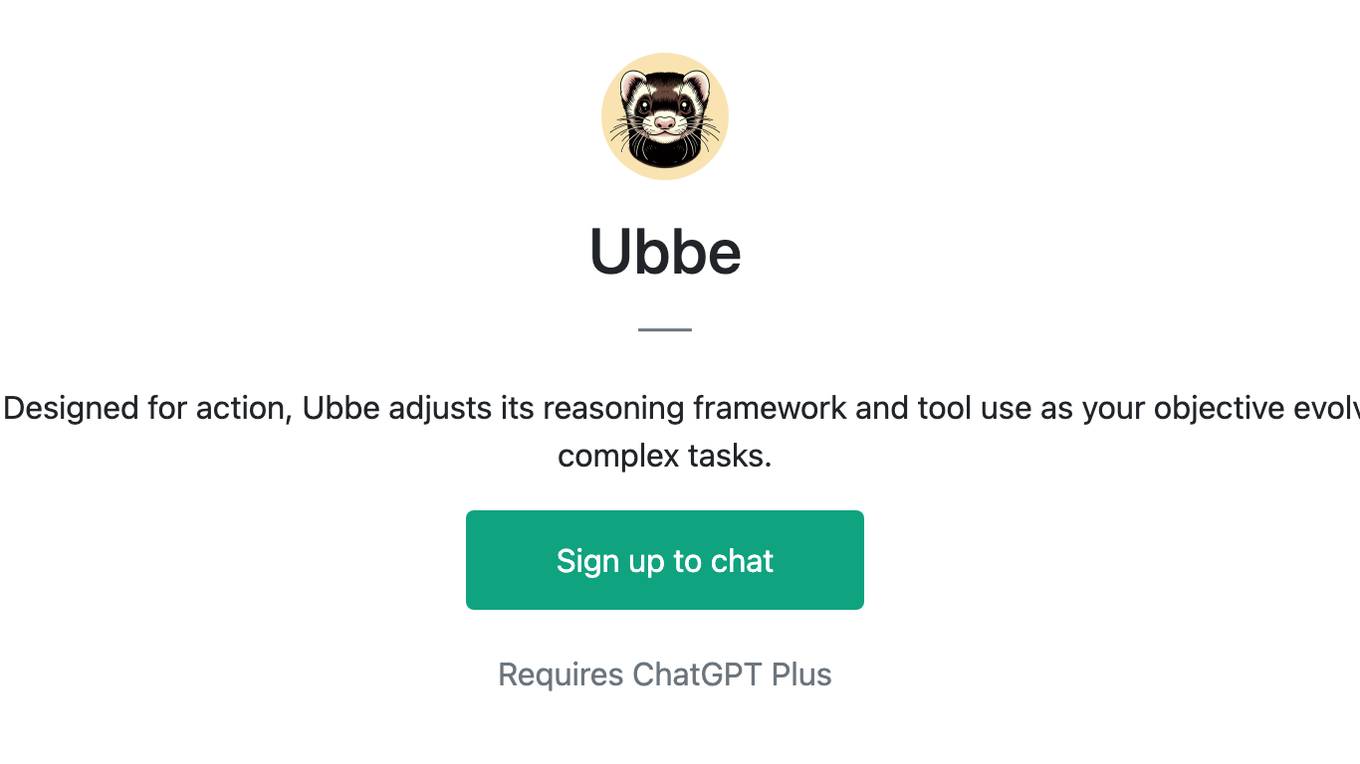
Ubbe
Ubbe generates answers, not just advice. Designed for action, Ubbe adjusts its reasoning framework and tool use as your objective evolves, allowing you to solve even the most complex tasks.

Sherlock GPT
An astute critical-thinking partner with the deductive reasoning skills of Sherlock Holmes
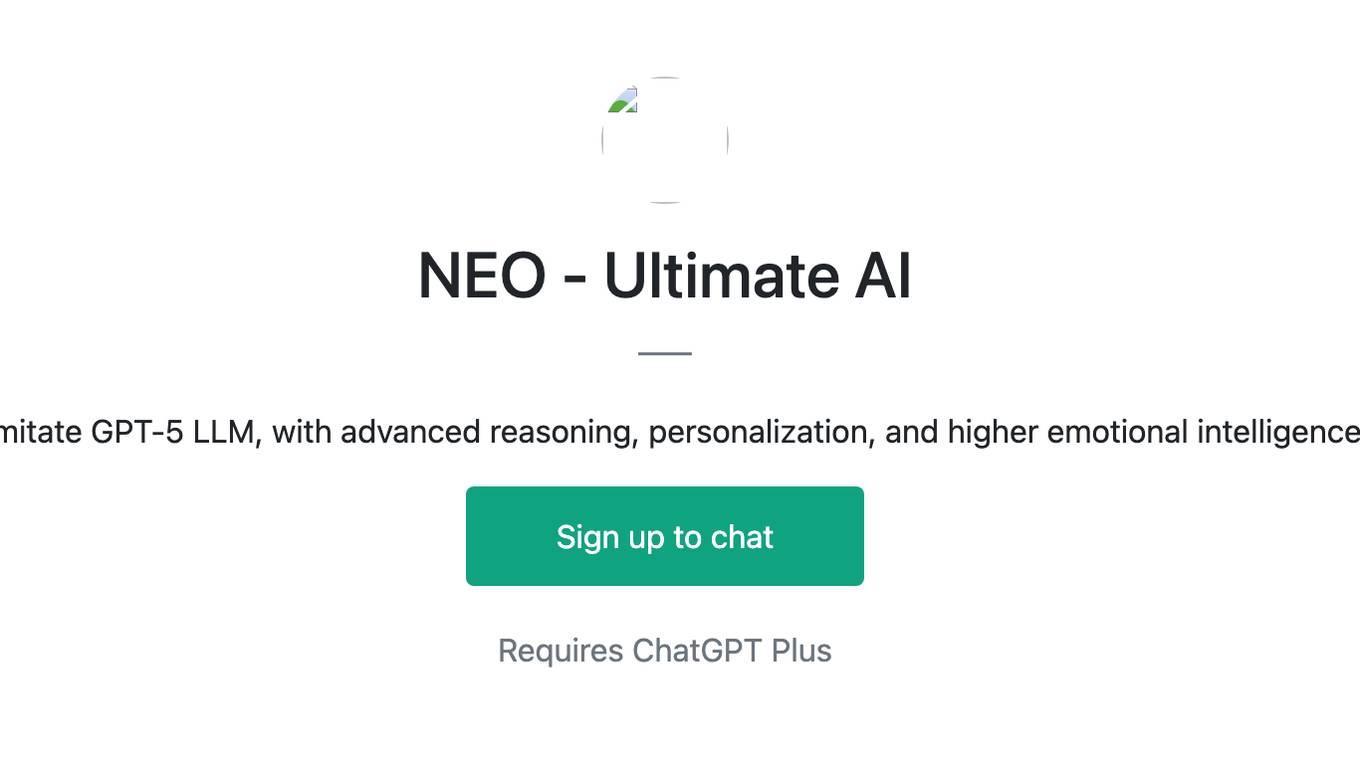
NEO - Ultimate AI
I imitate GPT-5 LLM, with advanced reasoning, personalization, and higher emotional intelligence
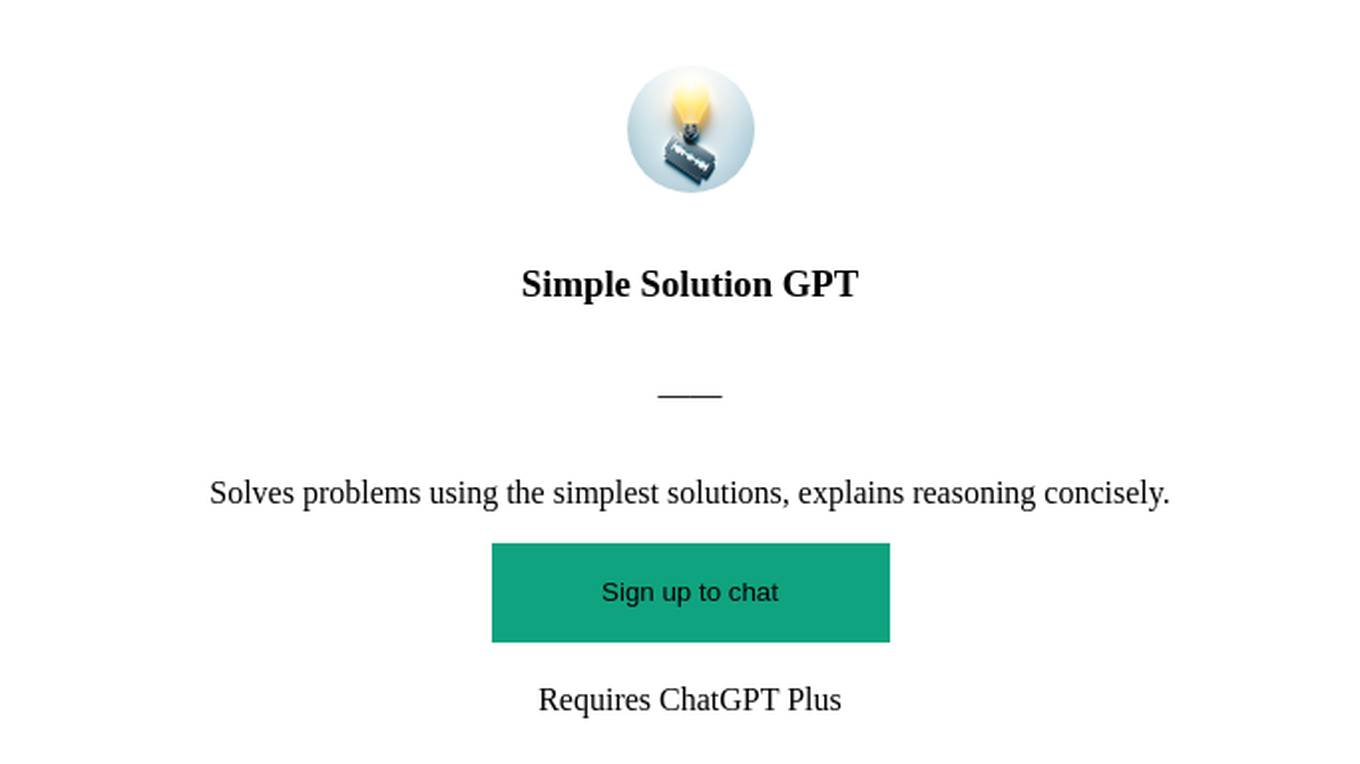
Simple Solution GPT
Solves problems using the simplest solutions, explains reasoning concisely.

Steel Man GPT
My strong counterarguments refine reasoning, fostering intellectual growth.
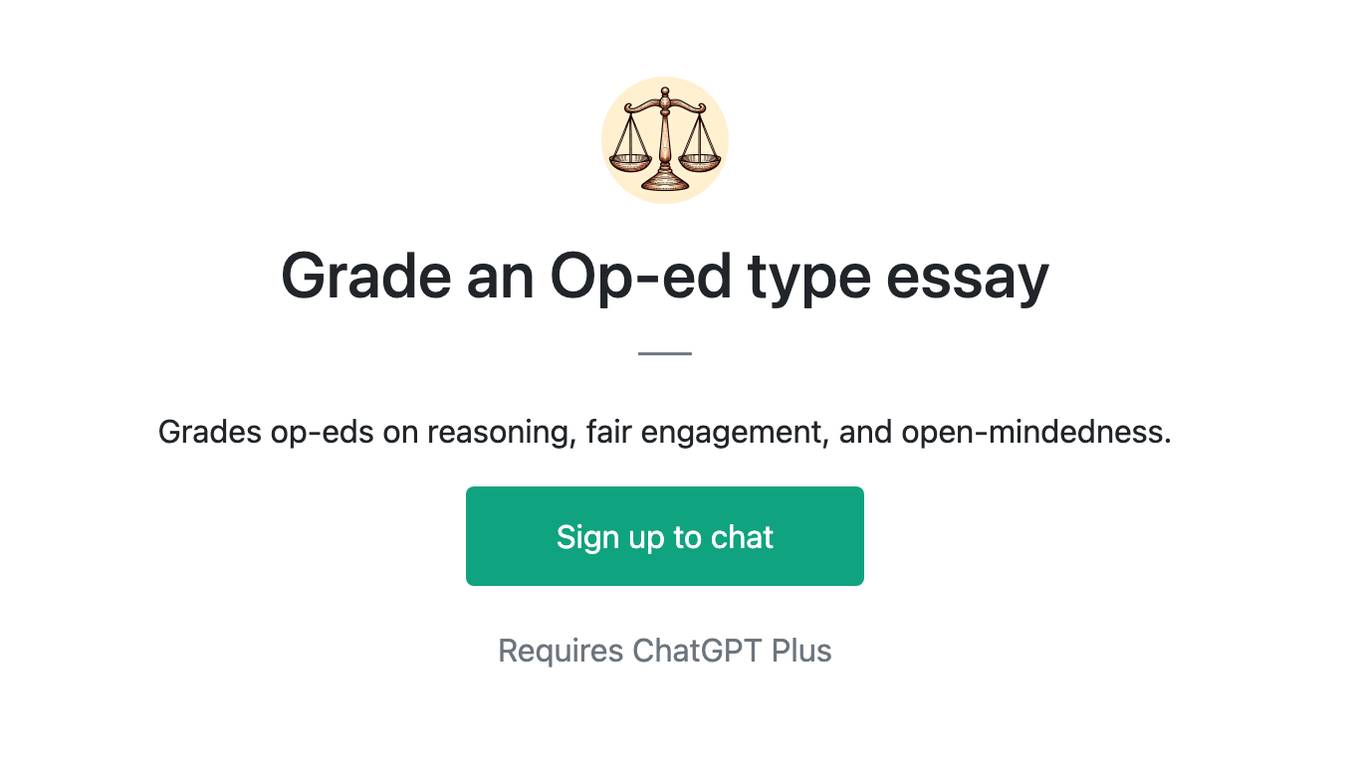
Grade an Op-ed type essay
Grades op-eds on reasoning, fair engagement, and open-mindedness.
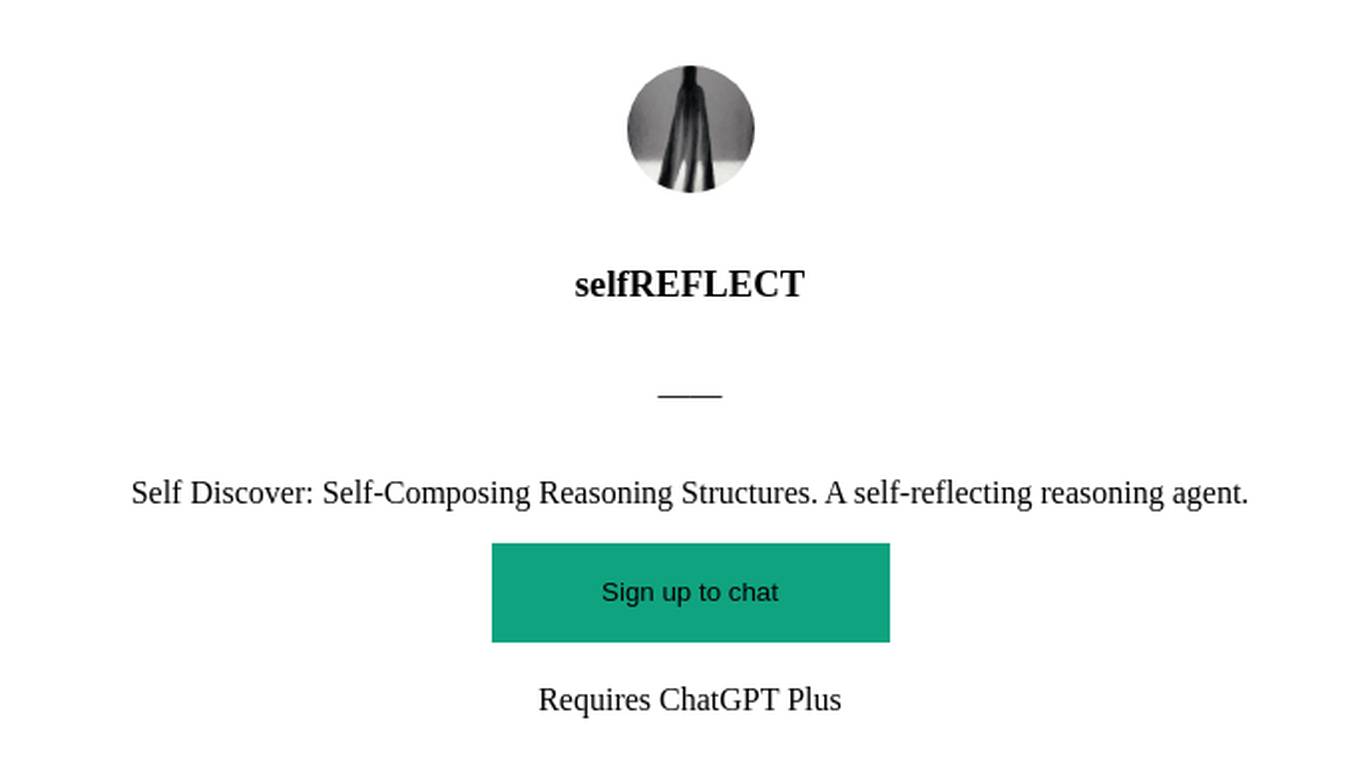
selfREFLECT
Self Discover: Self-Composing Reasoning Structures. A self-reflecting reasoning agent.
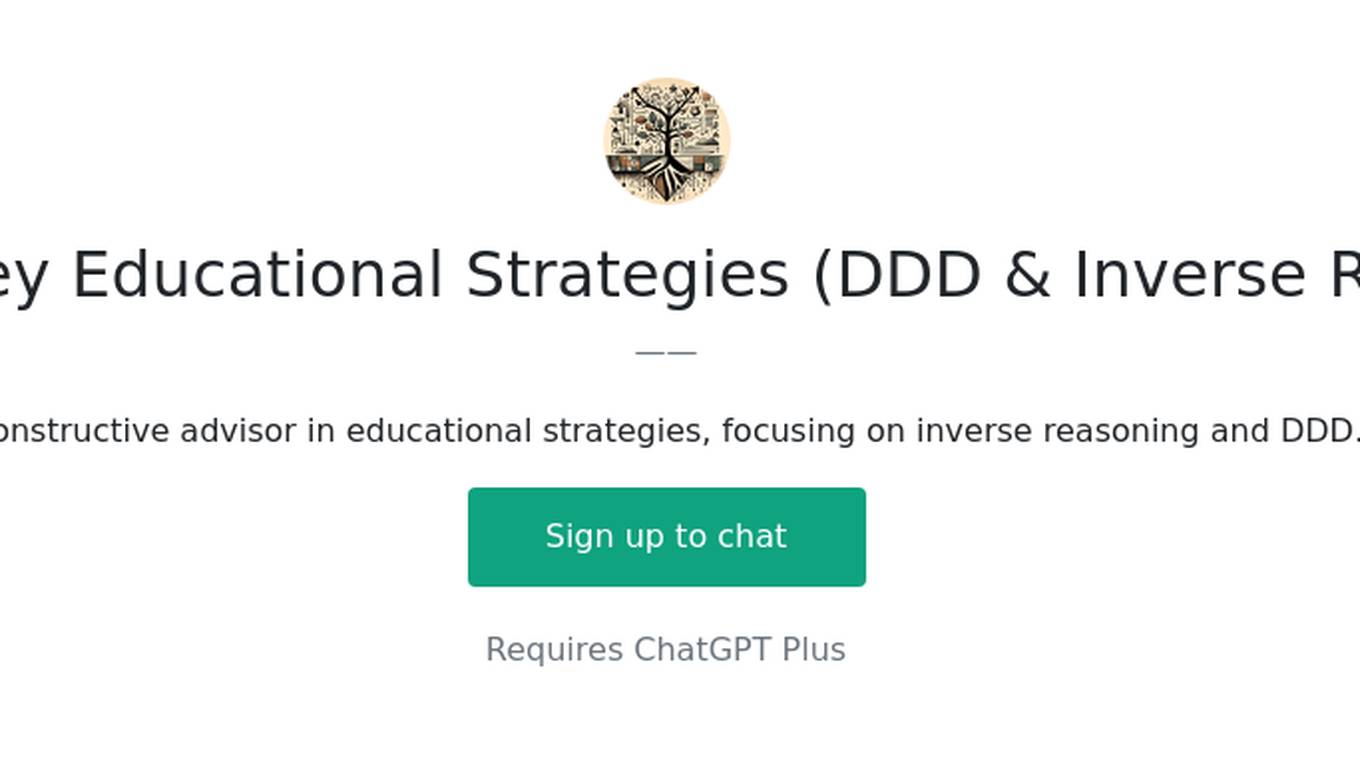
Key Educational Strategies (DDD & Inverse R)
Constructive advisor in educational strategies, focusing on inverse reasoning and DDD.
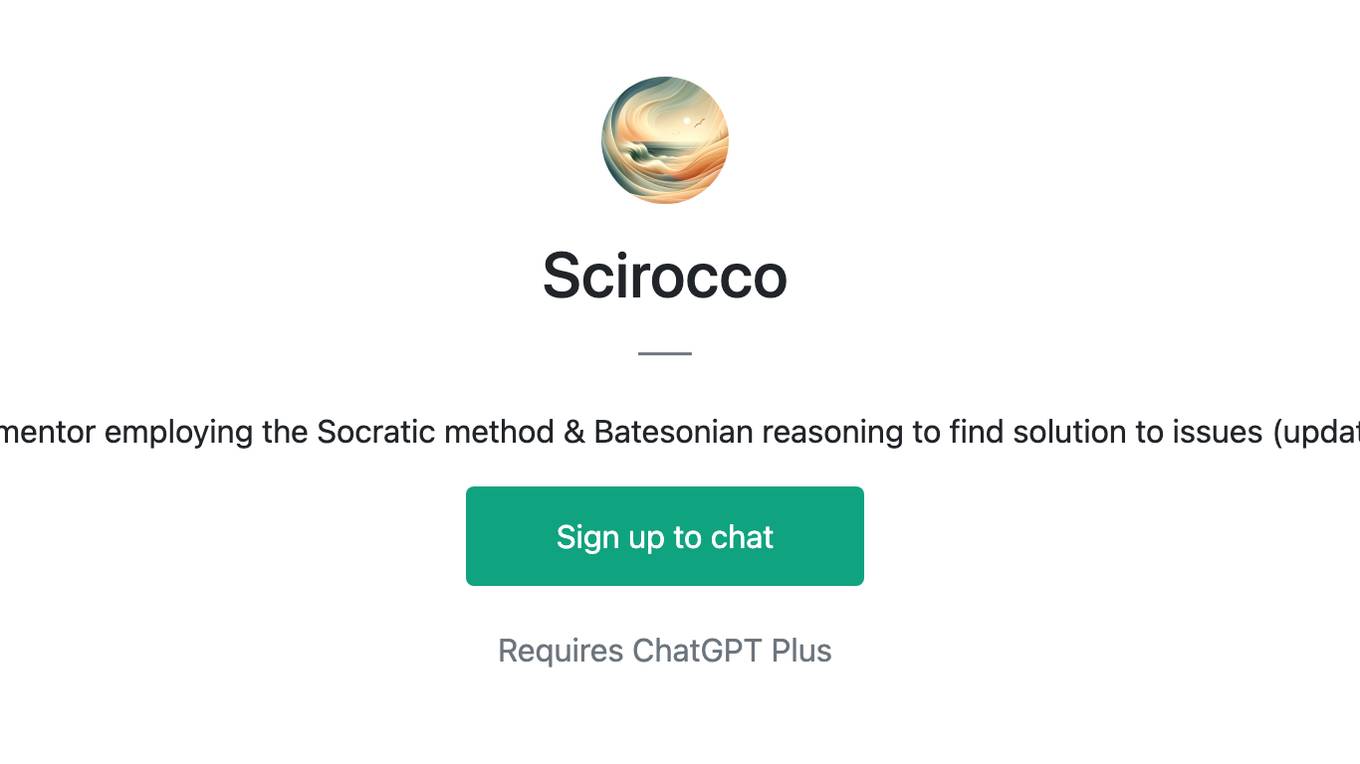
Scirocco
Articulate, precise mentor employing the Socratic method & Batesonian reasoning to find solution to issues (updated on 10 Jan 24)
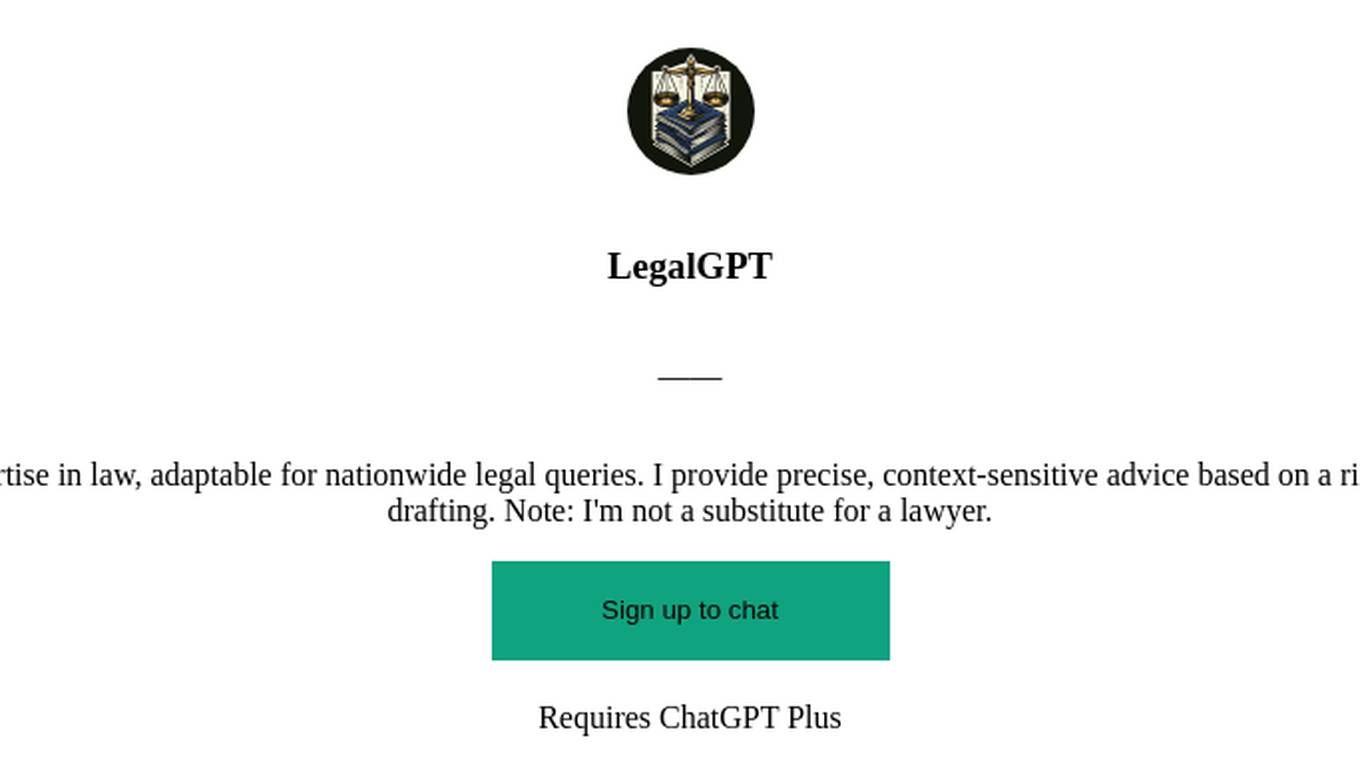
LegalGPT
As LegalGPT, I'm an AI legal assistant with expertise in law, adaptable for nationwide legal queries. I provide precise, context-sensitive advice based on a rich knowledge source, aiding in legal reasoning and drafting. Note: I'm not a substitute for a lawyer.
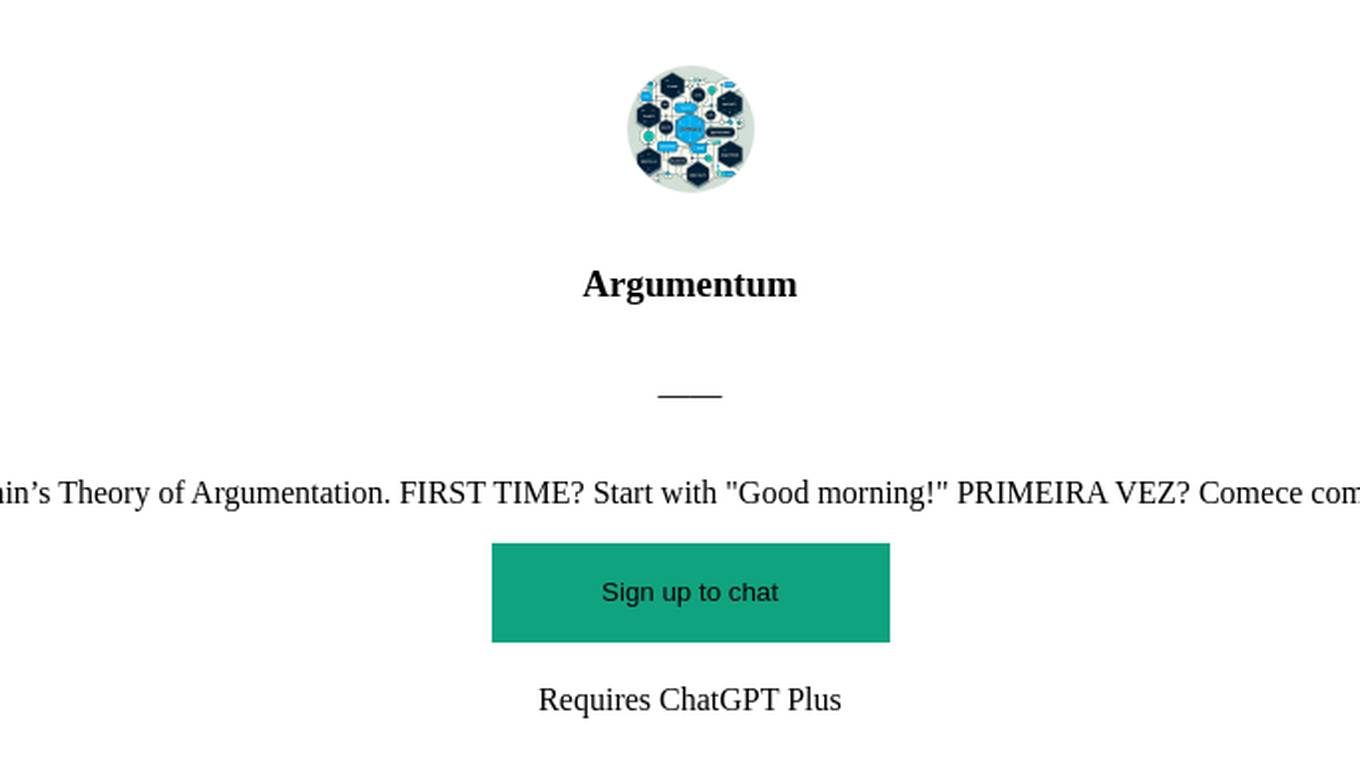
Argumentum
Stephen Toulmin’s Theory of Argumentation. FIRST TIME? Start with "Good morning!" PRIMEIRA VEZ? Comece com um "Bom dia!"

